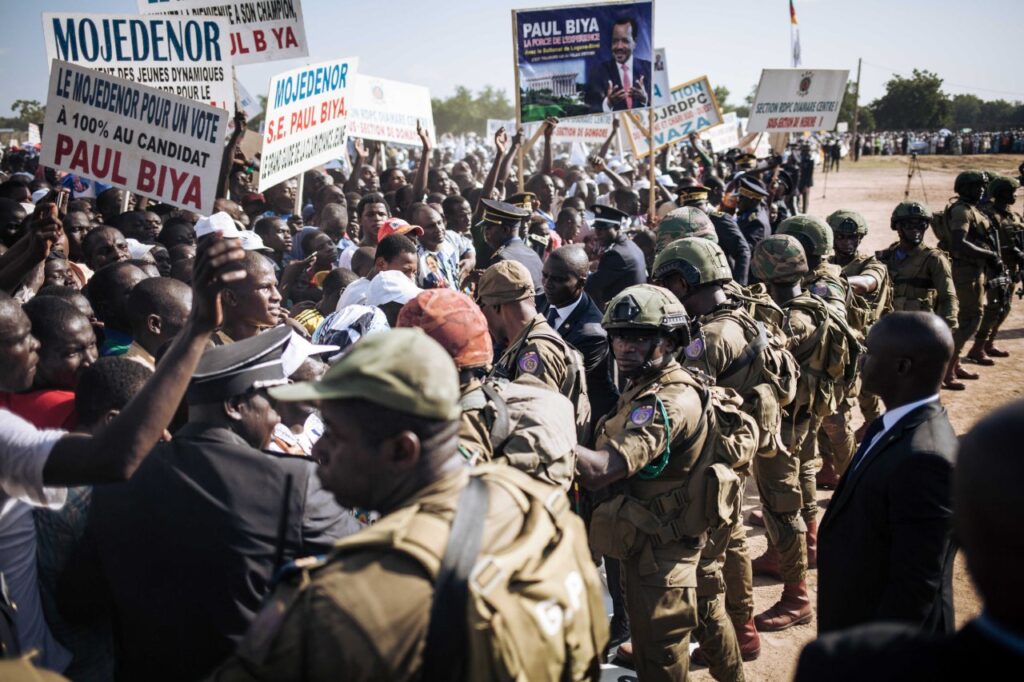Cameroon entered a second consecutive day of political unrest on Tuesday after the official proclamation of presidential election results sparked nationwide protests, international condemnation, and accusations of state repression.
Security forces maintained a heavy presence in the capital, Yaoundé, where demonstrations erupted Monday following the announcement of results by the Constitutional Council. Protests also spread across major cities including Garoua and the economic hub, Douala, where residents blocked traffic at city entrances to denounce what they described as a rigged outcome.
By Tuesday morning, Douala remained tense with shops and schools shuttered for a second day. A relative calm, however, was reported in Garoua as some activities slowly resumed.
The European Union voiced “deep concern about the violent repression of demonstrations,” deploring “the death by firearm of several civilians.” Brussels called for restraint, impartial investigations, and the immediate release of “all persons arbitrarily detained since the election.”
In what many analysts viewed as a diplomatic rebuke, ambassadors from the United States, Canada, and several European nations were absent during the Constitutional Council’s session announcing the results.
Opposition candidates expressed divided reactions to the official outcome. Issa Tchiroma Bakary and fifth-place contender Patricia Hermine Tomaïno Ndam Njoya rejected the results outright, with Ndam Njoya describing the electoral process as “weakened, undermined by irregularities and manipulation.”
Cabral Libii, who finished third, adopted a more restrained tone, acknowledging the announcement and congratulating the “candidate proclaimed elected”- without naming the long-time incumbent, Paul Biya. He urged his supporters to redirect their efforts toward upcoming local elections.
With tensions still simmering and international scrutiny intensifying, Cameroon’s fragile political climate faces its most significant test in years as the government struggles to contain the fallout from an increasingly contested electoral process.


